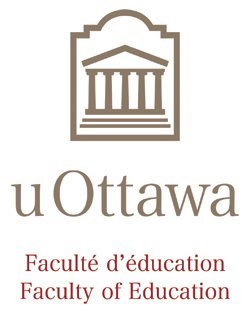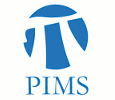2014 Canadian Mathematics Education Forum
University of Ottawa, May 1 - 4, 2014
Plenary Speakers
- FRANCE CARON, Université de Montréal
Reconnecting the curriculum - beyond tensions, myths and paradoxes
-
The mathematics curriculum is often conceived as accumulation of knowledge for which a “vertical integration” is expected to ensure some continuity from one educational level to the next. We propose the idea that a “horizontal integration”, that would take into consideration the multiplicity of today’s mathematical practices, could help us go beyond resilient myths and reduce some of the tensions that currently exist in the teaching of mathematics. This vision does not entail the sacrifice of mathematics quintessential characteristics; on the contrary, it could help bring them forward. To substantiate the proposal and illustrate it with examples, we will make use of experiences, observations, documents and discussions. And we will not hesitate to stand on the shoulders of giants.
- PETER HARRISON, Toronto DSB
Ontario's Stifling Mathematics Curriculum
-
This presentation will examine a mathematics problem that has been shared with many students of various ages for over 25 years. It will describe a variety of actual classroom experiences and observations. The potential benefits of engagement and challenge to many secondary school students will also be examined.
After this discussion of the problem, its "appropriateness", in light of the expectations listed in the current Ontario Mathematics Curriculum, will be scrutinized.
- PETER LILJEDAHL, Simon Fraser University
Environments to Occasion Problem Solving
-
We know that problem solving is an effective and important way for students to learn to think mathematically and to acquire a deeper knowledge and understanding of the mathematics they are learning. This is why it is so important that we find ways to enable teachers to introduce problem solving into their classrooms. But there is much more to this than identifying problems or teaching heuristics to solve them. Even an infusion of problem solving into mandated curriculum does not necessarily allow the goals of problem solving to be realized. The reason for this is that the implementation of problem solving in a classroom full of students that are not used to it by a teacher who is not experienced with it is not a fertile setting for success. The early challenges that the teacher faces may be enough to cause her to abandon her efforts. What such a teacher needs are a set of tools to help her have early success in her endeavour – to allow her to see the benefits of problem solving first hand and to build up the fortitude and commitment to make it a regular part of her teaching. In this presentation I look at a series of such tools, specifically designed to build a conducive problem solving environment in the classroom, and present the results of research that investigates their effectiveness in helping teachers to kick-start the use of problem solving in the classroom. Results indicate that a problem solving environment and culture can be quickly established even in very traditional classrooms.
- CHRIS SUURTAMM, University of Ottawa
Assessment that elicits and supports mathematical thinking
-
Current thinking and research in assessment and in mathematics education recognizes that mathematics is a complex process that is inadequately assessed using merely a paper-and-pencil test. But what does an assessment program look like that elicits, values and supports students’ mathematical thinking? This presentation will challenge the audience with taking a critical look at assessment from the perspective of what mathematics is valued and supported. It will also draw on research to share a variety of strategies and practices that support and value the development of students’ mathematical thinking and deeper understanding.






